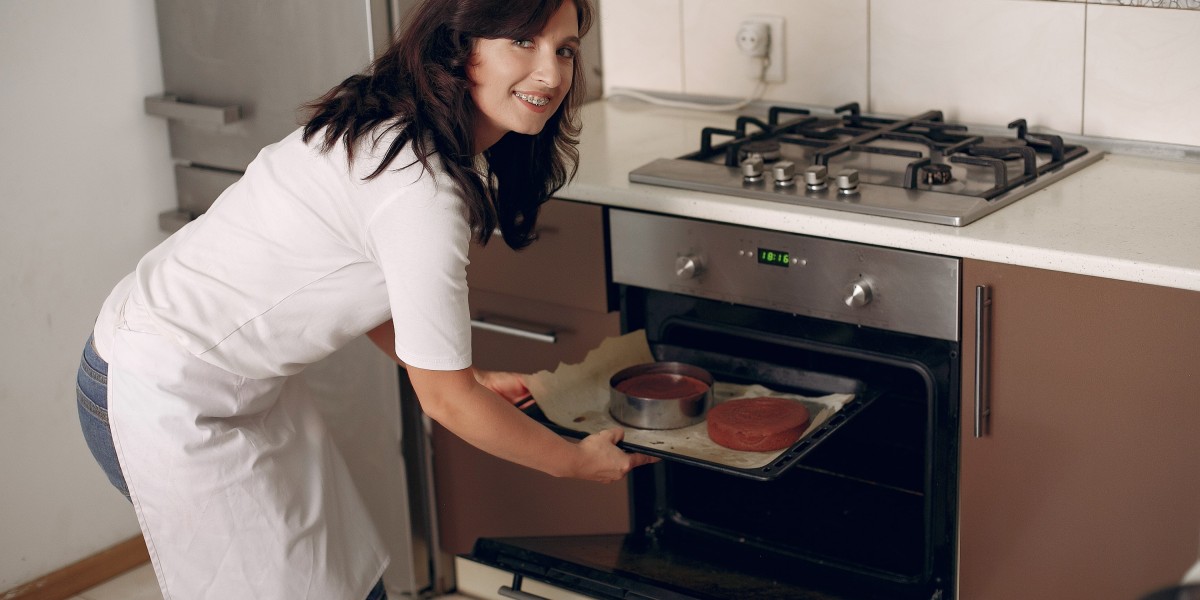The Modern Kitchen: A Guide to Built-In Ovens and Hobs
In today's busy world, where cooking has actually become an innovative outlet and an important part of daily life, having the ideal kitchen appliances is crucial. Among these, built-in ovens and hobs stand apart as favorites in modern-day kitchen areas. This short article intends to explore these appliances in depth, discussing their advantages, types, setup choices, and vital ideas for selecting the very best models for your kitchen.
Comprehending Built-In Ovens and Hobs
What are Built-In Ovens?
A built-in oven is a home appliance that is developed to fit effortlessly into cabinets, supplying a tidy visual in the kitchen. They differ from freestanding ovens and are known for their adaptability, offered in various sizes and functionalities. Built-in ovens can be electric, gas, and even steam ovens, making them ideal for various cooking styles.
What are Hobs?
Hobs, also called cooktops, are the flat cooking surfaces typically found on the counter top. Like ovens, hobs come in numerous forms, consisting of gas, electric, induction, and even integrated styles. Their compact nature permits versatility in kitchen designs and styles.
Table 1: Comparison of Built-In Ovens and Hobs
| Function | Built-In Oven | Hob |
|---|---|---|
| Setup Type | Integrated into kitchen cabinets | Installed on countertop |
| Cooking Methods | Baking, roasting, steaming | Boiling, frying, sautéing |
| Types | Single, double, combination | Gas, electric, induction |
| Aesthetics | Modern, sleek styles | Different surfaces available |
| Control | Digital programming, handbook | Knob or touch control |
| Cost Range | Mid to high-range | Wide, depending upon type |
Benefits of Built-In Ovens and Hobs
Aesthetic Appeal
Built In Range Cooker-in ovens and hobs contribute considerably to a structured look in modern-day kitchens. Their integration into cabinets enables a tidy and professional surface that matches any kitchen design.
Space-Saving Design
Among the critical benefits of built-in ovens and hobs is their space-saving style. As they are fitted directly into cabinets, they maximize important counter area, making the kitchen feel bigger and more organized.
Flexibility in Cooking Methods
Built-in ovens featured different cooking functions, such as convection, grilling, and self-cleaning alternatives. Similarly, hobs use diverse cooking methods, including fast boiling with induction technology or the conventional flame of gas hobs. This flexibility enables home cooks to experiment with a large range of cooking strategies.
Boosted Safety Features
Many modern-day built-in hobs and ovens come with innovative security functions, such as automatic shut-off, cool-touch doors, and kid locks. These features improve security, particularly in households with kids.

Picking the Right Built-In Oven and Hob
Choosing the ideal built-in oven and hob for your kitchen includes numerous factors to consider:
Factors to Consider
- Kitchen Layout: Understand the flow and style of your space to choose appliances that fit your design.
- Cooking Habits: Are you a casual cook, or do you prepare complicated meals? Comprehending your cooking requirements will assist your selection.
- Spending plan: Building a budget plan will help narrow down your choices without spending beyond your means.
- Energies Available: Check if you have access to gas lines for a gas hob or if you choose electric choices.
- Energy Efficiency: Look for energy-efficient designs that can minimize electrical power or gas bills gradually.
Kinds Of Built-In Ovens and Hobs
Built-In Ovens
- Single Ovens: Ideal for smaller sized kitchens or casual cooks.
- Double Ovens: Great for those who frequently captivate or cook several dishes all at once.
- Mix Ovens: Feature both conventional and microwave functionalities.
Hobs
- Gas Hobs: Perfect for those who prefer the control of open flames.
- Electric Hobs: Common and simple to utilize, however may take longer to warm up.
- Induction Hobs: Quick heating and energy-efficient, however need suitable pots and pans.
Frequently asked question Section
Q1: Are built-in ovens more pricey than freestanding ovens?A1: Generally, built-in ovens are more expensive due to their style and setup requirements. Nevertheless, the price can differ based on functions and brands. Q2: Can I set up a built-in oven myself?A2: While DIY setup is possible, it is suggested to work with a professional for gas and electrical connections to guarantee safety and compliance with regional codes. Q3: What maintenance do built-in ovens and hobs require?A3: Regular cleaning is important. Hobs may need occasionaldescaling, and ovens can take advantage of self-cleaning functions if If you value precise temperature level control, gas may be the Try to find those with high scores to save money on utility bills. In summary, built-in ovens and hobs are necessary elements of an elegant and practical modern-day kitchen. Their variety, safety features, and visual appeal make them an appealing option for homeowners and aspiring chefs alike. By carefully considering your cooking routines, kitchen layout, and design choices, you can pick the right built-in appliances that improve your cooking experience and transform your kitchen into a culinary sanctuary. The financial investment in these appliances not just includes value to your home but likewise raises your cooking to brand-new heights.
offered. Q4: How do I select between gas and electric hobs?A4: Consider your cooking preferences, offered energy connections, and security features.
ideal choice. For fast heating, electric or induction might be better. Q5: What are the energy performance ratings of built-in ovens and hobs?A5: Most modern built-in ovens and hobs included energy ratings, similar to other appliances.








